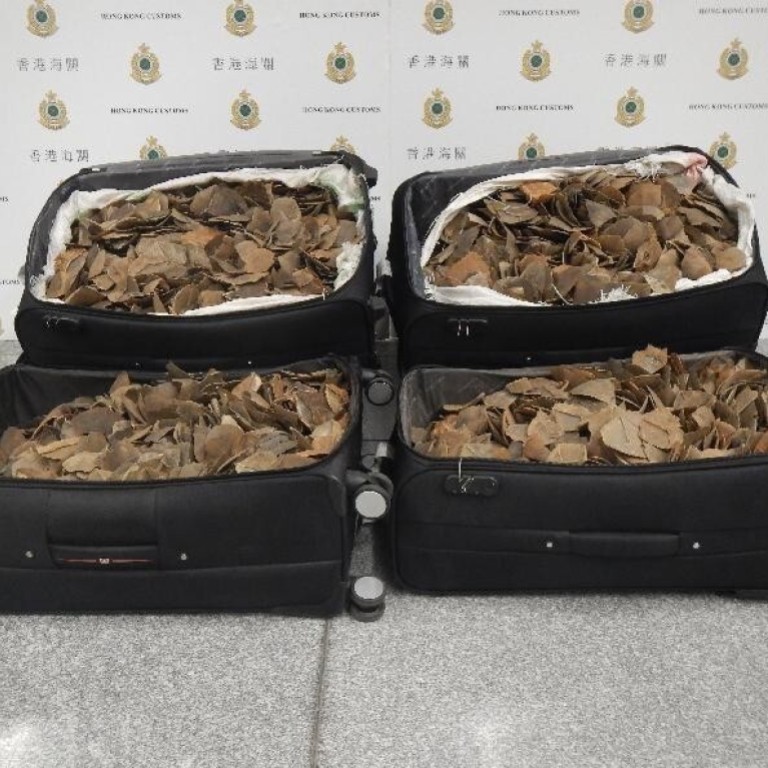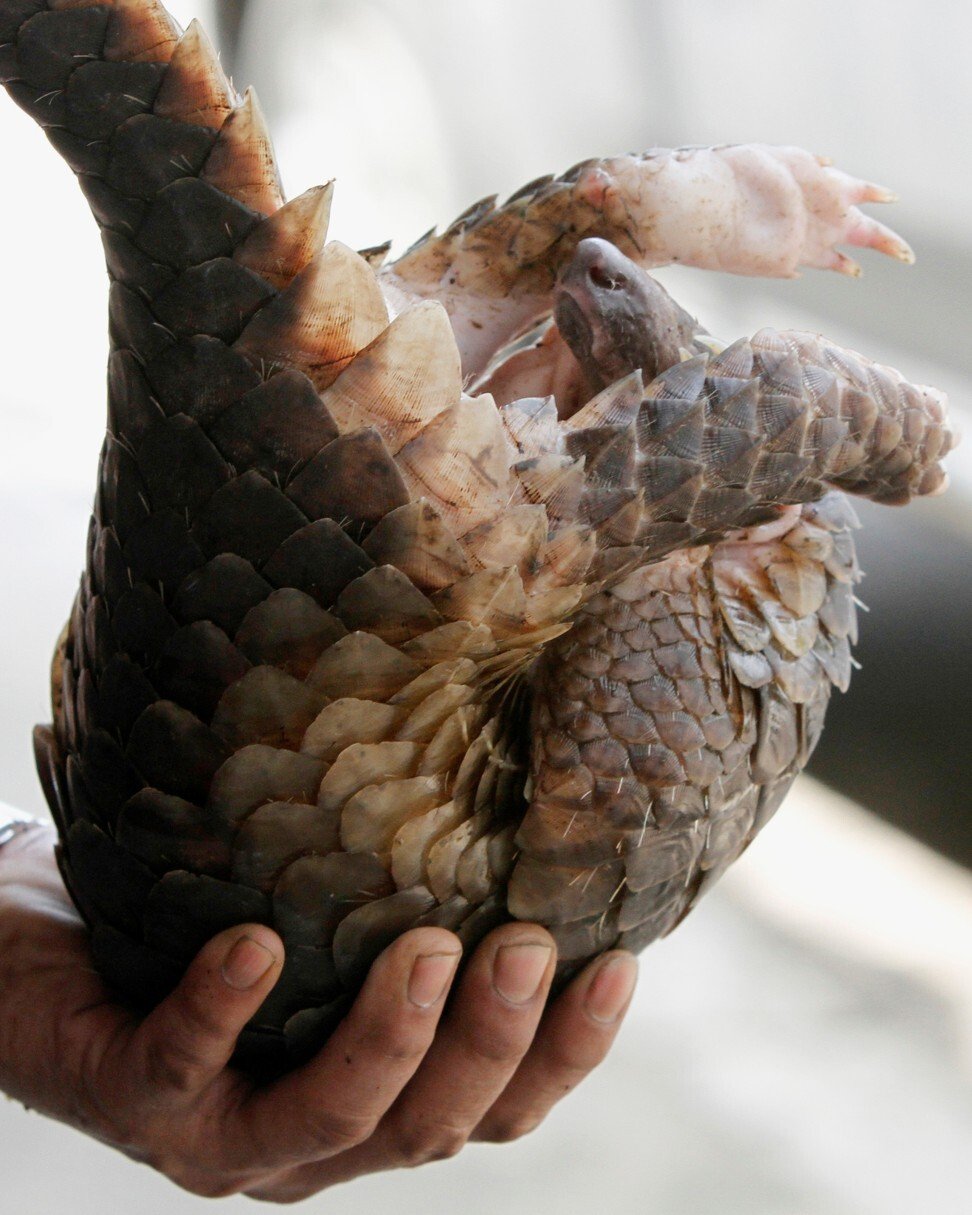
Hong Kong hands down its stiffest sentence yet for pangolin scale smuggling
- Two mainland Chinese men given 21 and 27 months in jail for trafficking in the critically endangered animal
- They were found at the airport with 100kg of scales worth an estimated HK$400,000
A Hong Kong court has handed down the city’s harshest penalty yet for smuggling pangolin scales, sentencing two mainland Chinese men to 21 and 27 months in jail for trafficking 100kg of the scales.
The outer layer of the critically endangered animal is highly prized in traditional Chinese medicine, despite the lack of proof of its effectiveness in treating ailments.
Zhang Guozhu, 47, from Fujian province, and Ding Wei, 21, from Zhejiang province, pleaded guilty to smuggling pangolin scales worth about HK$400,000 (US$51,610).
“Although the defendants did not kill the mammals with their own hands, they played an important role in the commercial activities in selling pangolin scales,” Deputy District Judge Ernest Lin Kam-hung said in handing down the sentences. “Their responsibilities are the same with those who killed these mammals.”
Customs officers intercepted the two men at Hong Kong airport on July 17, 2019. They were arrested for violating the Protection of Endangered Species of Animals and Plants Ordinance after failing to produce the requisite permit.
Pangolin scale smugglers: a few culprits caught, but masterminds behind illegal wildlife trade evade arrest
Ding, who was working in the Democratic Republic of Congo as a gold trader, had arrived from Kinshasa and was carrying about 100kg of scales in four suitcases. He said he was instructed by another man who promised to give him 12,000 yuan (US$1,690) for bringing the luggage to Hong Kong, and upon arrival was asked to hand over two suitcases containing 50.02kg in scales to Zhang, who had arrived from Xiamen in Fujian.
Zhang said he was to receive 1,000 yuan for flying into Hong Kong to pick up the bags. The men, who claimed they did not know each other, were planning to take the suitcases out of the airport’s restricted area and over the border to mainland China.

In sentencing, the judge used 36 months as the starting point, taking into account the guilty pleas and personal mitigation factors. Ding received the longer sentence of 27 months.
The maximum penalty for illegally importing pangolins, which in November 2018 were moved into the highest Appendix I category of Hong Kong’s endangered animal and plant law, is a HK$10 million fine and 10 years in jail.
The international trade of pangolin scales was banned in 2017, but smuggling has persisted, mostly into mainland China, with Hong Kong a key route. City authorities seized more than 62 tonnes of scales valued at more than HK$100 million between 2014 and last year, according to customs data.
Amanda Whitfort, an associate law professor at the University of Hong Kong, said the sentencing starting point was appropriate.
Could pangolins be a piece of the coronavirus puzzle?
“However, it is important for law enforcement to go beyond just prosecuting the mules and investigate the people who arranged the smuggling and paid the mules to carry the scales,” Whitfort said. Authorities should prosecute high-value wildlife smuggling cases the same way they did organised crime, she said, for greater deterrence.
In May last year, a Chinese traveller – also from Fujian province – was sentenced to 20 months in jail for smuggling 48kg of pangolin scales.
Help us understand what you are interested in so that we can improve SCMP and provide a better experience for you. We would like to invite you to take this five-minute survey on how you engage with SCMP and the news.
